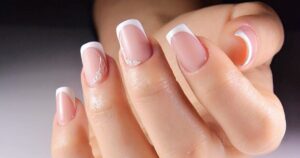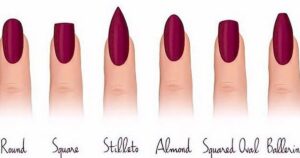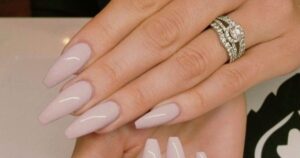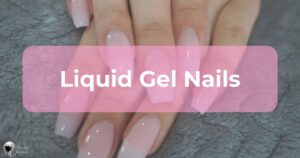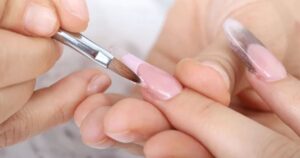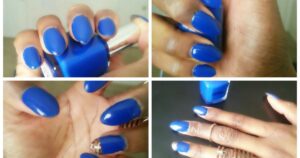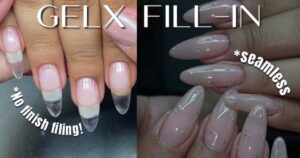In the realm of prenatal care, expectant mothers often seek answers regarding the safety of hair, skin, and nail vitamins. This article aims to explore the impact of these supplements on pregnancy and provide accurate information to assist in making informed decisions. By examining the potential effects of biotin, recommended dosage, and potential interference with lab testing, expectant mothers can gain insights into maintaining healthy hair, skin, and nails during this transformative period.
Key Takeaways
- Hair, skin, and nail vitamins are generally considered safe for pregnant women.
- It is recommended to consult with a healthcare professional before taking any supplements during pregnancy.
- Biotin supplements may interfere with certain laboratory tests used during pregnancy, so consultation with a healthcare provider is important.
- Most prenatal vitamins contain the recommended daily allowance (RDA) of biotin, and biotin can also be obtained through a healthy diet.
Safety of Hair, Skin, and Nail Vitamins During Pregnancy
While it is important to prioritize the health and well-being of both the mother and the developing fetus, it is crucial to examine the safety of hair, skin, and nail vitamins during pregnancy. Many women are concerned about the impact of these vitamins on their pregnancy and wonder if it is safe to continue taking them. The good news is that most hair, skin, and nail vitamins are generally considered safe for pregnant women. They typically contain a combination of vitamins and minerals that are beneficial for overall health and can support the growth of strong hair, skin, and nails. However, it is always recommended to consult with a healthcare professional before starting or continuing any supplements during pregnancy. Now, let’s delve into the specific impact of biotin on pregnancy.
Impact of Biotin on Pregnancy
The potential impact of biotin on pregnancy and its effects on maternal health and fetal development are important considerations for expectant mothers. Biotin, also known as vitamin B7, is essential for maintaining healthy skin, hair, and nails. However, there is limited research on the specific effects of biotin supplementation during pregnancy. While biotin is generally considered safe for consumption, high doses of biotin supplements may interfere with certain laboratory tests commonly used during pregnancy. It is recommended that pregnant women consult with their healthcare provider before taking biotin supplements to ensure proper dosage and to discuss any potential risks. As with any dietary supplement, it is important to prioritize a balanced diet and consult with a healthcare professional to ensure the safety and well-being of both the mother and the developing fetus.
Recommended Biotin Dosage During Pregnancy
Proper dosage of biotin during pregnancy, in conjunction with regular prenatal care, is crucial for ensuring optimal health for both the mother and the developing fetus. Biotin, also known as vitamin B7, is an essential nutrient that plays a vital role in the growth and development of cells. While biotin deficiency is rare, it is important to maintain adequate levels during pregnancy to support the healthy development of the baby. Here are three key points to consider regarding the recommended biotin dosage during pregnancy:
- Consult with your healthcare provider: It is essential to consult with your healthcare provider before starting any new supplements, including biotin, during pregnancy. They can evaluate your specific needs and recommend the appropriate dosage for you.
- Prenatal vitamins: Most prenatal vitamins contain biotin in the recommended daily allowance (RDA) for pregnancy. Taking these vitamins as prescribed by your healthcare provider can ensure you are getting the necessary biotin intake.
- Dietary sources: Biotin can also be obtained through a healthy and balanced diet. Foods such as eggs, nuts, seeds, whole grains, and leafy green vegetables are rich sources of biotin. Including these foods in your diet can contribute to meeting the recommended biotin intake during pregnancy.
Interference of Biotin With Lab Testing
Interference of biotin with lab testing poses potential challenges in accurate diagnostic results. Biotin, also known as vitamin B7, is commonly found in hair, skin, and nail supplements. It is known to interfere with certain laboratory tests, particularly those that use biotin-streptavidin technology. Biotin can bind to streptavidin, a protein used in many lab assays, leading to false results. This interference can affect various tests, including hormone assays, thyroid function tests, and cardiac biomarkers. False results can lead to misdiagnosis or unnecessary medical interventions. To ensure accurate test results, it is important for healthcare professionals to be aware of biotin interference and communicate any biotin supplementation to the laboratory performing the tests. Additionally, patients should inform their healthcare providers about any biotin supplements they are taking to prevent any potential inaccuracies in their diagnostic results.
Tips for Healthy Hair, Skin, and Nails During Pregnancy
Maintaining a balanced diet and practicing good skincare and nail care routines are essential for promoting healthy hair, skin, and nails during pregnancy. Here are three tips to help you achieve just that:
- Eat a nutritious diet: Incorporate foods rich in vitamins and minerals, such as fruits, vegetables, whole grains, lean proteins, and healthy fats. These nutrients play a vital role in supporting hair, skin, and nail health.
- Hydrate adequately: Drinking enough water is crucial for maintaining hydrated and healthy skin. Aim for at least eight glasses of water per day to keep your skin and nails moisturized.
- Follow a gentle skincare and nail care routine: Opt for mild, pregnancy-safe products and avoid harsh chemicals. Moisturize your skin regularly and keep your nails trimmed and clean to prevent breakage.
Changes in Hair Growth, Skin, and Nails During Pregnancy
During pregnancy, there are significant changes in the growth of hair, skin, and nails, which are influenced by hormonal fluctuations and increased blood flow. These changes can vary among individuals, but many women experience an increase in hair thickness and fullness during pregnancy. This is due to elevated levels of estrogen, which prolongs the hair’s growth phase and reduces shedding. Additionally, some women may notice changes in skin and nail health. Hormonal changes can cause an increase in oil production, leading to acne or changes in skin texture. Nails may also become stronger and grow more quickly. It is important to note that these changes are temporary and will typically resolve after pregnancy. Maintaining a healthy diet, staying hydrated, and practicing good skincare habits can help support overall hair, skin, and nail health during this time.
FAQ’s
Can Hair, Skin, and Nail Vitamins Be Harmful to the Baby During Pregnancy?
Hair, skin, and nail vitamins may potentially harm the baby during pregnancy. It is essential to consult with a healthcare professional before taking any supplements, as they can provide personalized advice based on your specific circumstances.
Are There Any Specific Hair, Skin, and Nail Vitamins That Are Safe to Take During Pregnancy?
During pregnancy, it is important to be cautious about the supplements and vitamins one takes. While there may be hair, skin, and nail vitamins that are safe for pregnant women, it is advisable to consult a healthcare professional for specific recommendations.
Can Taking Biotin Supplements During Pregnancy Affect the Development of the Baby?
Taking biotin supplements during pregnancy may have potential effects on the development of the baby. It is recommended to consult with a healthcare professional before starting any supplement regimen during pregnancy to ensure safety.
Is It Safe to Take Higher Doses of Biotin During Pregnancy for Better Hair, Skin, and Nail Health?
While it is important to prioritize the health and well-being of both the mother and the baby during pregnancy, it is advisable to consult with a healthcare professional before taking higher doses of biotin or any other supplements for hair, skin, and nail health.
Can Taking Hair, Skin, and Nail Vitamins Interfere With the Results of Prenatal Lab Tests?
Taking hair, skin, and nail vitamins while pregnant does not typically interfere with the results of prenatal lab tests. However, it is always best to consult with a healthcare professional before starting any new supplements during pregnancy.
Conclusion
In conclusion, it is generally safe to take hair, skin, and nail vitamins during pregnancy. However, it is important to consult with a healthcare provider before starting any new supplement regimen. Biotin, a common ingredient in these vitamins, is also safe to consume during pregnancy, but it is recommended to stick to the recommended dosage. It is worth noting that biotin can interfere with certain lab tests, so it is important to inform healthcare providers if you are taking biotin supplements. Overall, maintaining a healthy lifestyle and diet is key to promoting healthy hair, skin, and nails during pregnancy.



